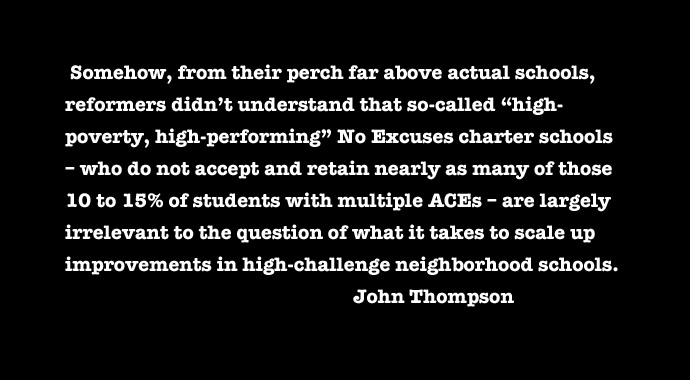Paul Tough Grapples with Real Challenges Faced by Low Income Students

By John Thompson.
I can’t wait to read and reread Paul Tough’s new book, Helping Children Succeed: What works and Why. Tough’s Atlantic Magazine preview mostly prompted unadulterated joy from reading such an excellent synthesis of scientific research. But it also serves as a reminder that I should not repeat my mistake with his previous masterpiece, How Children Succeed, and get my hopes up and assume that corporate reformers will really listen to Tough and his sources.
In fact, I suspect that many accountability-driven reformers will respond as they have long been doing with Tough’s and others’ indictments of data-driven, competition-driven reform; they will quote Tough and continue – or even step up – the policies that Tough argues against. My first post, however, will focus on the ways that Tough explains what reformers have done wrong since the No Child Left Behind Act of 2001, and how science points the way toward a new era of respectful and humane school improvement.
Tough’s Atlantic article doesn’t mince words, and it immediately repudiates the cornerstone of the contemporary reform movement. Tough says, “The truth, as many American teachers know firsthand, is that low-income children can be harder to educate than children from more-comfortable backgrounds.” Had output-driven reformers understood that, I doubt we would have gone down their test-driven, competition-driven path. New opportunities have arisen, however, since “the much-criticized No Child Left Behind Act, which dominated federal education policy for the past decade and a half, was finally euthanized.”
First, we now know what most education researchers anticipated would be the likely result of data-driven accountability. The reformers’ quest for metrics to drive their reward and punish schemes would fail to produce reliable estimates of the effect of individual teachers on student performance, even when it was Paul Tough Grapples with Real Challenges Faced by Low Income Students - Living in Dialogue:
